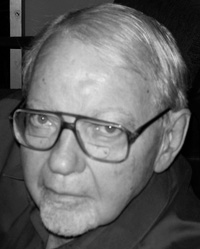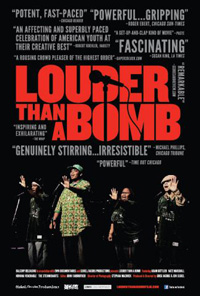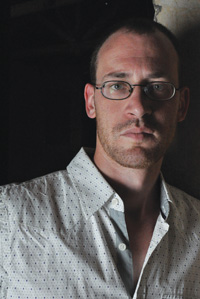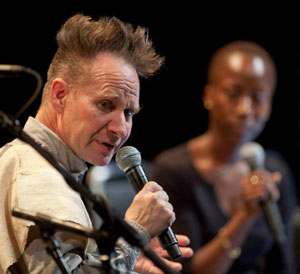Literary theorist and critic Fredric Jameson is William A. Lane Professor in the Program in Literature and Romance Studies at Duke University. He has published a wide range of works analyzing literary and cultural texts, while developing his own Marxist theoretical perspectives and offering important critiques of opposing theoretical schools and positions. Professor Jameson’s best-known publications include Postmodernism, or, The Cultural Logic of Late Capitalism; The Political Unconscious; and Marxism and Form, and his most recent works are The Hegel Variations and Representing 'Capital.'
Concert at CNMAT: Acoustic Compositions and Electronic/Video Selection
Featuring Avenali Resident Fellow Emmanuel Witzhum.
Composition Colloquium: “Hybrid Spectrums Identity”
Avenali Resident Fellow Emmanuel Witzthum presents acoustic, digital and inter-medial works, connecting them with his artistic agenda as an Israeli artist and the myriad connotations this identity holds within it. He references Israeli reality and how it has shaped his artistic decisions.
<em>Louder than a Bomb</em> (2010)
The oldest of literary forms gets an energetic update in Greg Jacobs and Jon Siskel’s inspiring depiction of Chicago’s annual high school poetry contest. Following four teams from across the city, the film stops to explore the backgrounds of several of the contestants and offers a glimpse of the lives that are eventually woven into their verse.
“Dissolving Localities | Urban Space and the Prosumer: The Future of Artistic Creation?”
Israeli musician Emmanuel Witzthum is a composer, violist, installation artist, and director of The Lab (Hama'abada) in Jerusalem, a venue for experimental theater, dance, and music. He has also served as musical advisor to the Israel Festival, the premier festival for the arts in Israel. Mr. Witzthum will be hosted by the Department of Music while at Berkeley.
<em>Dissolving Localities | Berkeley Jerusalem</em>: A Multimedia Exhibit
Dissolving Localities | Berkeley Jerusalem will extend Avenali Resident Fellow Emmanuel Witzthum's recent project, where artists were invited to "perform" the city of Jerusalem as a musical/visual instrument. By interweaving recorded sights and sounds, they created an expanding open-source multimedia montage.
The Course Threads Symposium is a capstone forum for students who have completed all requirements of the Course Threads Program. Students will present on the topics they studied within their thread, discussing the ways in which interdisciplinary course work informed their knowledge of the topic.
Jennifer Arnold’s A Small Act follows Chris Mburu, a Harvard educated Human Rights attorney for the United Nations working to establish a charitable education fund for children in his native Kenya. Mburu hopes to name the fund after the unknown benefactor who paid for his own education, and his search eventually leads to Hilde Back, a retired schoolteacher from Sweden who turns out to have a remarkable story of her own. Even as he struggles with bureaucratic hurdles and unexpected political developments in Kenya, Mburu’s connection with Back provides him the impetus to realize the project at any cost.
Novelist Francine Prose is former President of the PEN American Center and author of over 16 books of fiction, a book on Anne Frank, and the New York Times bestseller Reading Like a Writer.
"Desdemona: Dialogues Across Histories, Continents, Cultures"
Peter Sellars, Toni Morrison [via Skype], and Rokia Traoré in conversation with UC Berkeley faculty Abdul JanMohamed (English), Tamara Roberts (Music) and Darieck Scott (African American Studies).
This panel discussion is free and open to the public but tickets are required. Free tickets will be available at the Zellerbach Playhouse one hour before the event.
Presented in collaboration with Cal Performances.






